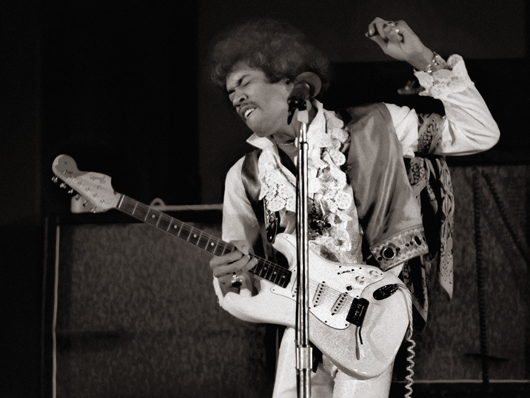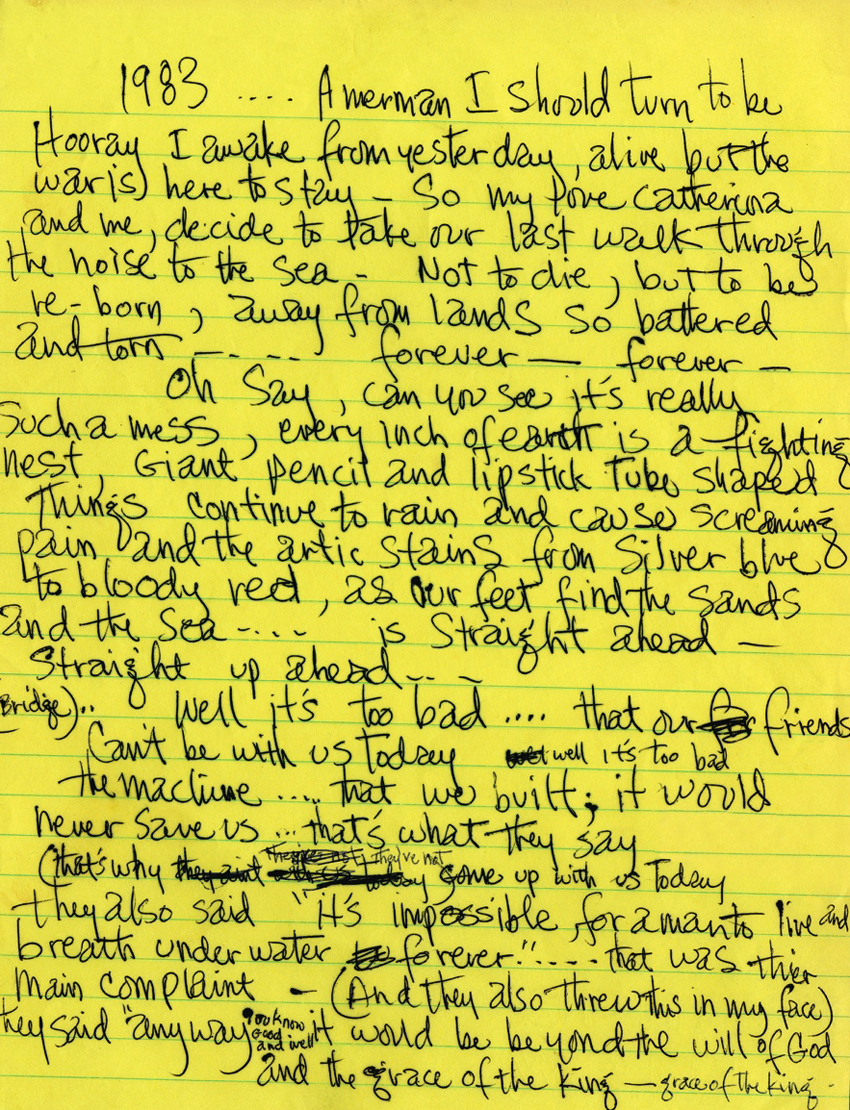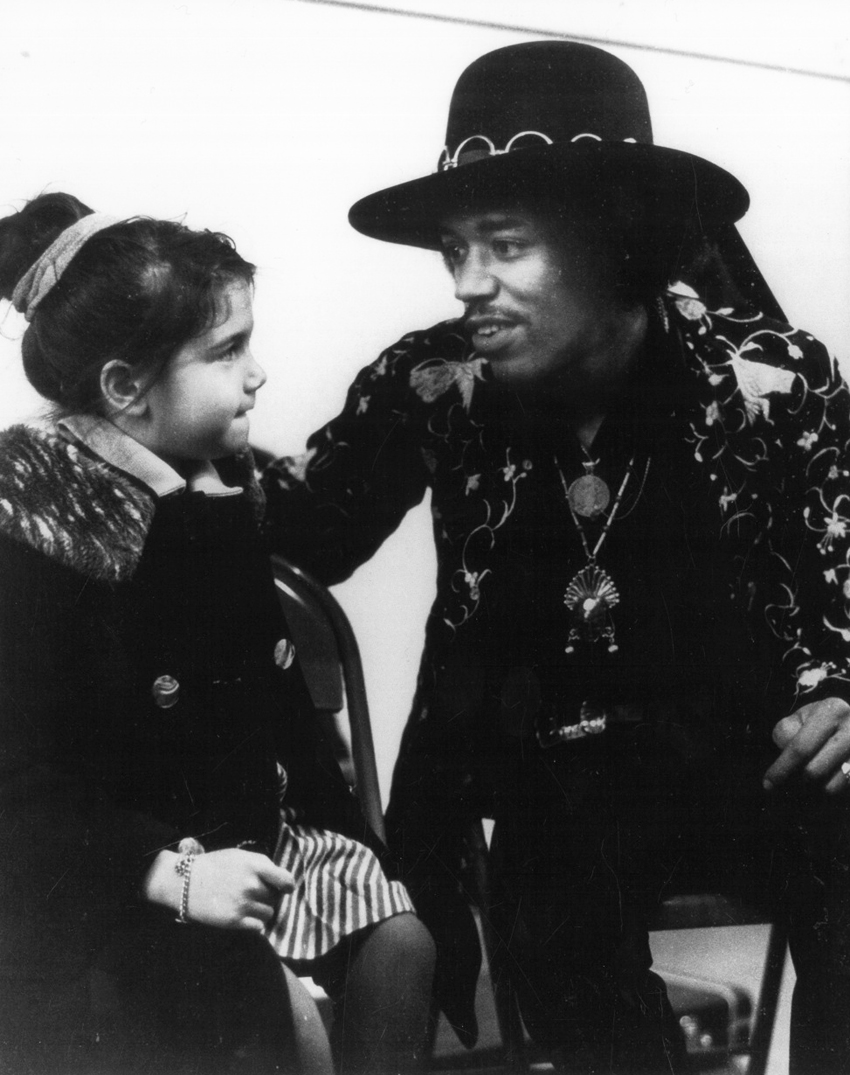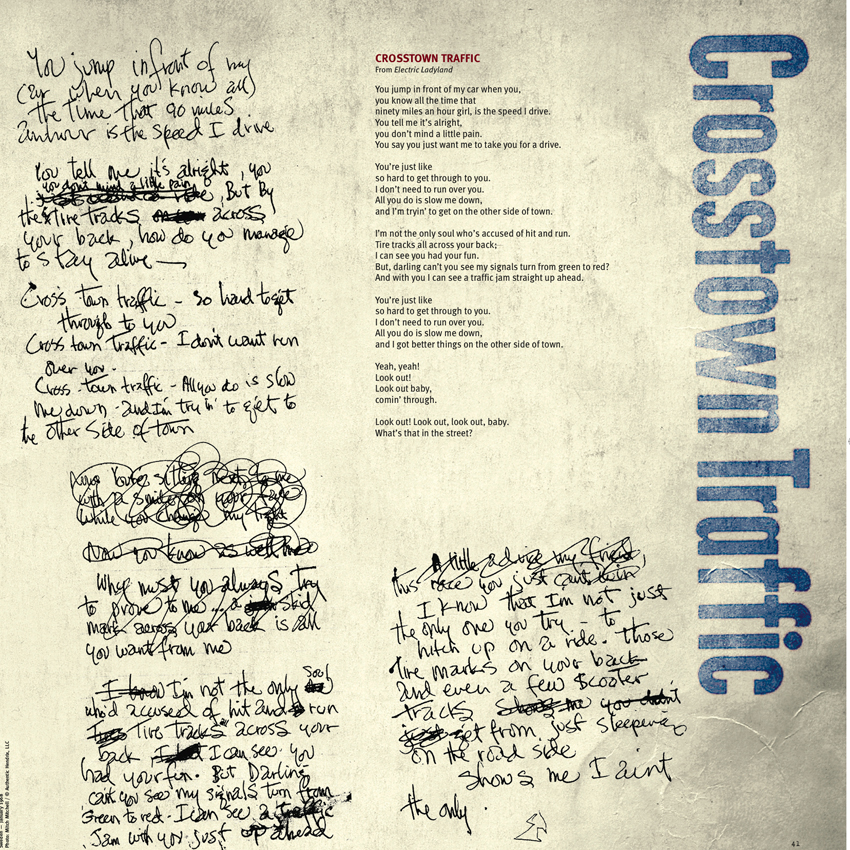
Want all the hottest music and gear news, reviews, deals, features and more, direct to your inbox? Sign up here.
You are now subscribed
Your newsletter sign-up was successful
Several years ago, Janie Hendrix and the Hal Leonard Publishing Corporation released Jimi Hendrix - The Lyrics, a fascinating visual examination of the late musician's handwritten lyrics, including songs such as Little Wing, I Don't Live Today, Foxey Lady and many others.
This fall, Janie Hendrix and Hal Leonard offer a more complete picture, Jimi Hendrix - The Ultimate Lyric Book, a grand, sprawling 294-page coffee table edition, filled with gorgeous photography, that features handwritten lyrics to the guitar genius' classic songs, featuring unpublished tracks from Valleys Of Neptune.
MusicRadar sat down with Janie Hendrix to talk about her step-brother as a wordsmith, what lyrical influences he drew upon and how the guitar legend's handwriting reflected his personality.
How did this book come about?
"When I was 12, I remember Monika Dannemann [Hendrix's girlfriend, who was with him when he died] coming to our house, and she was showing me all of these lyrics. I had watched Jimi as he used to write, and I thought his writing was like art. I thought, Somebody needs to see this. They need to see his handwriting.
"I did put out a lyric book through Hal Leonard some years ago, but since then, we unearthed many more writings. So I sat down with the people at Hal Leonard and said, 'I've got a third more handwritten lyrics, and some of them are unpublished. Would you be interested in a coffee table book?' They were all on for the idea."
How did you unearth these other lyrics? Where did they come from?
Want all the hottest music and gear news, reviews, deals, features and more, direct to your inbox? Sign up here.
"People are aging and they've had their 'come to Jesus moments' [laughs], and they've decided to come forward. A great deal of the lyrics came from Bob Levine. He was one of Jimi's managers. We acquired them from him, actually. People are ready to let go of things, and we're fortunate that they did hang on to them, they did take care of them, and now we're able to put them into this beautiful book."

From Jimi Hendrix: The Ultimate Lyric Book (c) 2012 by Experience Hendrix, LLC. Published by Backbeat Books, an imprint of Hal Leonard Corporation. Reprinted by permission.
It's always interesting to me to see how songwriters would pen lyrics on things like hotel stationary and pieces of paper bags backstage.
"It's when that muse lands or that inspiration comes. Jimi would tell me to keep a pad and pen next to my bed. I used to have very vivid dreams, and he'd say, 'Write them down.' That's what he did, as well. As you can see in the book, a lot of his lyrics are written on hotel stationary or napkins or anything he could get his hands on. He would write. It's beautiful to see his writing. It's like a piece of you comes out."
Has Jimi's handwriting ever been analyzed by experts?
"It has been. I know we have that analysis somewhere in our archives. It pretty much describes who he is - that he's creative, he works both sides of his brain, he's extremely intelligent. There's some really incredible intuitive insights into his handwriting and who he was."
As a lyricist, Jimi was very inspired by Bob Dylan. Did he ever talk about any other songwriters as influences?
"There's a picture he drew as a kid of Elvis Presley, and he drew all the song titles around him. I think he was an admirer of people who could write. You've got Bob Dylan, he loved Muddy Waters, Curtis Mayfield, Sam Cooke - he loved all the old greats. Dylan, sure, you can hear the inspiration in his lyrics. He hung out with Chas Chandler a lot - Chas was his manager at one time. He really encouraged Jimi to write and not just play cover tunes. That was really life-changing for Jimi - and the world. Now we have 110 songs."
From what you've been told, were there ever any instances where the lyrics came before the music?
"I think in many instances they did. He'd write down the lyrics, and in a lot of them he'd put in notes of how he wanted the song to go. He hadn't really laid the tracks down for how it was going to sound."
What about books? What kinds of things would Jimi read to drawn inspiration?
"He loved sci-fi books. We have a picture of him where he's holding one of those Penguin books, and it's a science fiction story. The whole idea that you had a third eye, your chakras, how colors affect you - he was very interested in all of that and incorporated it on stage. The colors would change. He had that same feeling in the studio, covering lights with film to create a mood."

Janie and Jimi Hendrix in Seattle, 12 February 1968. © ULVIS ALBERTS/EMP
As you know, we revere Jimi for his guitar playing, but we don't focus on other aspects, like his singing and certainly his lyric writing.
"I'll share a little story about his singing. Jimi never thought he was much of a singer. My dad could be brutally honest. He would say, 'You can't sing' - and my dad was a decent singer. My dad's idea of singing and what Jimi was doing were two different things. He used to say, 'You can't sing, so it's good you can play guitar.' He was very supportive of him in the guitar arena, but he was just being honest.
"But when Jimi was going to England, he was all excited, telling my dad, 'They're putting this group behind me, I'm off to the big time, I'm going to change the spelling of my name to Jimi, and guess what… they want me to sing!' My dad was like, 'Oh, sheesh! Goodness.' [Laughs] But Jimi said, 'They're all hollering out here, so I'm just gonna holler like the rest of them.'
"As far as his lyrics go, no one really knows that he wrote 110 songs - more than that, because we unearthed some unpublished songs. We don't even have the music to those; they're just words."
What kind of imagery is in these unpublished songs? What kinds of stories was he weaving?
"They're very similar to how he is in his thinking. They're timeless. It's about times of then, times of yesteryear, times of the future. It's a message. All of his lyrics are a message of love. He's sharing dreams he's had, how he wants our world to be, some of the experiences he's had… brought across in a poetic way."

From Jimi Hendrix: The Ultimate Lyric Book (c) 2012 by Experience Hendrix, LLC. Published by Backbeat Books, an imprint of Hal Leonard Corporation. Reprinted by permission.
During his career, music journalism was still in its infancy. We didn't have the careful analysis that we've had for decades now. Did Jimi ever voice concern that his lyrics were misunderstood?
"His main concern was that people listened to his music. He didn't feel that he was touching all the lives that he wanted to with his music. Although he was very appreciative of his fans, he felt that his audience was very narrow. He really wanted it to expand. It's sad, because it wasn't until Band Of Gypsys that he was really heard by our own culture, and that really affected him and really hurt him. He felt like, 'You're not getting it. Why - because you think I'm just a rock 'n' roll guitarist?' That's why he used to say, 'Don't confuse yourself or me by putting me in a box.'
"He never really talked about what songs were about. I will say this about Purple Haze: The original lyrics, which are at the Rock and Roll Hall of Fame in Cleveland, they have completely different words - 'Purple Haze, Jesus saves…' It could be talking about abortion, it could be talking all kinds of things. People thought it was about drugs, but that's not what the song began as."
Were there any of the lyrics, the unpublished stuff, where you read them and said to yourself, "What the heck is he talking about?"
[Laughs] "I don't think it was more that. I think it was more me going, 'Idiot! Get this. What am I doing? Why am I not understanding this?' It's odd, because I have kids now who are close to the age of Jimi when he passed away. At 27 years old, Jimi wrote 110 songs. He traveled, he experienced so much, and here we are still putting out more music. It's unbelievable. As soon as we think we're getting close to the bottom of the well, more people come with tapes.
"There was so much in him that he couldn't get it out fast enough. He was a workaholic. I'll never know exactly what he meant, because it was all in his mind. It's all open to interpretation."
Joe is a freelance journalist who has, over the past few decades, interviewed hundreds of guitarists for Guitar World, Guitar Player, MusicRadar and Classic Rock. He is also a former editor of Guitar World, contributing writer for Guitar Aficionado and VP of A&R for Island Records. He’s an enthusiastic guitarist, but he’s nowhere near the likes of the people he interviews. Surprisingly, his skills are more suited to the drums. If you need a drummer for your Beatles tribute band, look him up.
